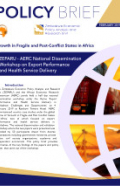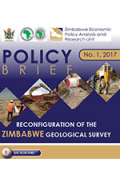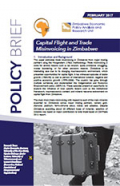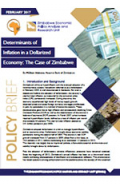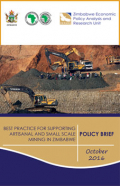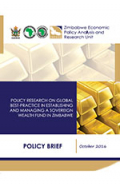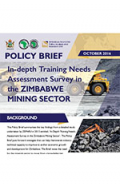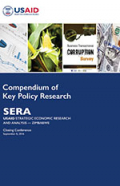This policy brief summarises the key findings of the two research papers presented at the ZEPARU-AERC Dissemination workshop on Export Performance and Health Service Delivery.
Policy briefs
This Policy Brief summarises the key findings from a detailed study undertaken by ZEPARU in 2016 entitled,‘Reconfiguration of the Zimbabwe Geological Survey’.
This paper estimates trade misinvoicing in Zimbabwe from major trading partners using the Morgenstern (1963) methodology. Trade misinvoicing is done for several reasons such as tax evasion, quota avoidance, smuggling, money laundering, or for other unknown reasons.
Zimbabwe’s drive to hyperinflation and the eventual adoption of a multi-currency system, henceforth referred to as a dollarization in February 2009, is well documented in literature.
The developing world, particularly Africa, is awash with natural resources including unparalleled mineral endowments yet Africa is considered the poorest continent on Earth.
Policy Brief Global Best-Practice in Establishing and Managing a Sovereign Wealth Fund in Zimbabwe.
This Policy Brief summarises the key findings from a detailed study undertaken by ZEPARU in 2015 entitled, ‘In-Depth Training Needs Assessment Survey in the Zimbabwe Mining Sector’.
Since 2011, USAID’s Strategic Economic Research and Analysis (SERA) program has supported the Government of Zimbabwe in moving toward more inclusive growth built upon evidence-based policy analysis and research.
As a strategy to promote the tourism sector based on its contribution to the economy in Zimbabwe, Government decided to exempt accommodation services for tourists from Value Added Tax (VAT).
This policy brief offers advice on the necessary conditions that should be created in order for government to successfully issue Treasury Bills in context of a dollarized economy.
This Policy Brief offers advice on strategies necessary to position the Tourism sector on a sustainable growth path, in support of the country's medium term growth objectives.





